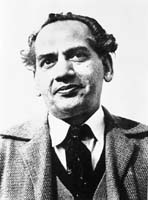About Faiz Ahmed Faiz (by Simon Korner)
Just as the poetry of Pablo Neruda is massively popular with ordinary Chileans – who regard him as their national poet – so Faiz Ahmed Faiz is loved by millions of Pakistanis, who know his poems by heart. His funeral in 1984 was a day of mourning for the whole country. Many Faiz poems have been set to music and are still widely sung.
Faiz, a Communist like Neruda, was born in British India in 1911, the son of a lawyer. He joined the newly formed Progressive Writers’ Movement in the 1930s, served in the Indian Army during the Second World War and became a Lieutenant Colonel. After Partition he moved to Pakistan, where he became editor of the Pakistan Times, an English-language daily. He also worked as managing editor of the Urdu daily Imroz, and was actively involved in organising trade unions.
In 1951 Faiz was accused of plotting a coup with a group of Pakistani army officers and, after four years on death row, was released in 1955 after worldwide pressure from such stars as Paul Robeson. In 1962 he was awarded the Lenin Peace Prize by the Soviet Union. He went into exile in Moscow, London and Beirut, eventually returning to Pakistan.
Much of his poetry follows the conventions of ghazal, the classical form of traditional Urdu poetry, which has been influenced by Persian literature. But Faiz’s work revolutionises the conventions, extending the meanings of many traditional terms. For instance, Faiz often addresses poems to his “beloved”, a central word in the ghazal vocabulary. In his hands, it refers to both a person and also to the people as a whole, even to revolution. He sees the individual as existing within a wider context: “The self of a human being, despite all its loves, troubles, joys and pains, is a tiny, limited and humble thing.”
His most famous poem Don’t Ask Me for That Love Again, which is not in the strict ghazal form, explains why he can no longer cocoon himself inside romantic love.
DON’T ASK ME FOR THAT LOVE AGAIN
That which then was ours, my love,
don’t ask me for that love again.
The world then was gold, burnished with light –
and only because of you. That’s what I had believed.
How could one weep for sorrows other than yours?
How could one have any sorrow but the one you gave?
So what were these protests, these rumours of injustice?
A glimpse of your face was evidence of springtime.
The sky, whenever I looked, was nothing but your eyes.
If you’d fall into my arms, Fate would be helpless.
All this I’d thought, all this I’d believed.
But there were other sorrows, comforts other than love.
The rich had cast their spell on history:
dark centuries had been embroidered on brocades and silks.
Bitter threads began to unravel before me
as I went into alleys and in open markets
saw bodies plastered with ash, bathed in blood.
I saw them sold and bought, again and again.
This too deserves attention. I can’t help but look back
when I return from those alleys – what should one do?
And you are still so ravishing – what should I do?
There are other sorrows in this world,
comforts other than love.
Don’t ask me, my love, for that love again.
(Translated from Urdu by Agha Shahid Ali)


One thought on ““Don’t Ask Me for That Love Again” by Faiz Ahmed Faiz”